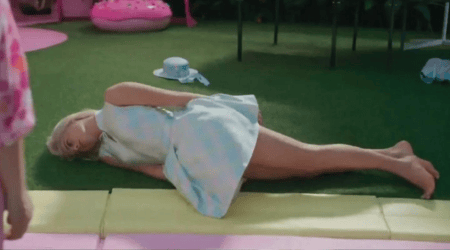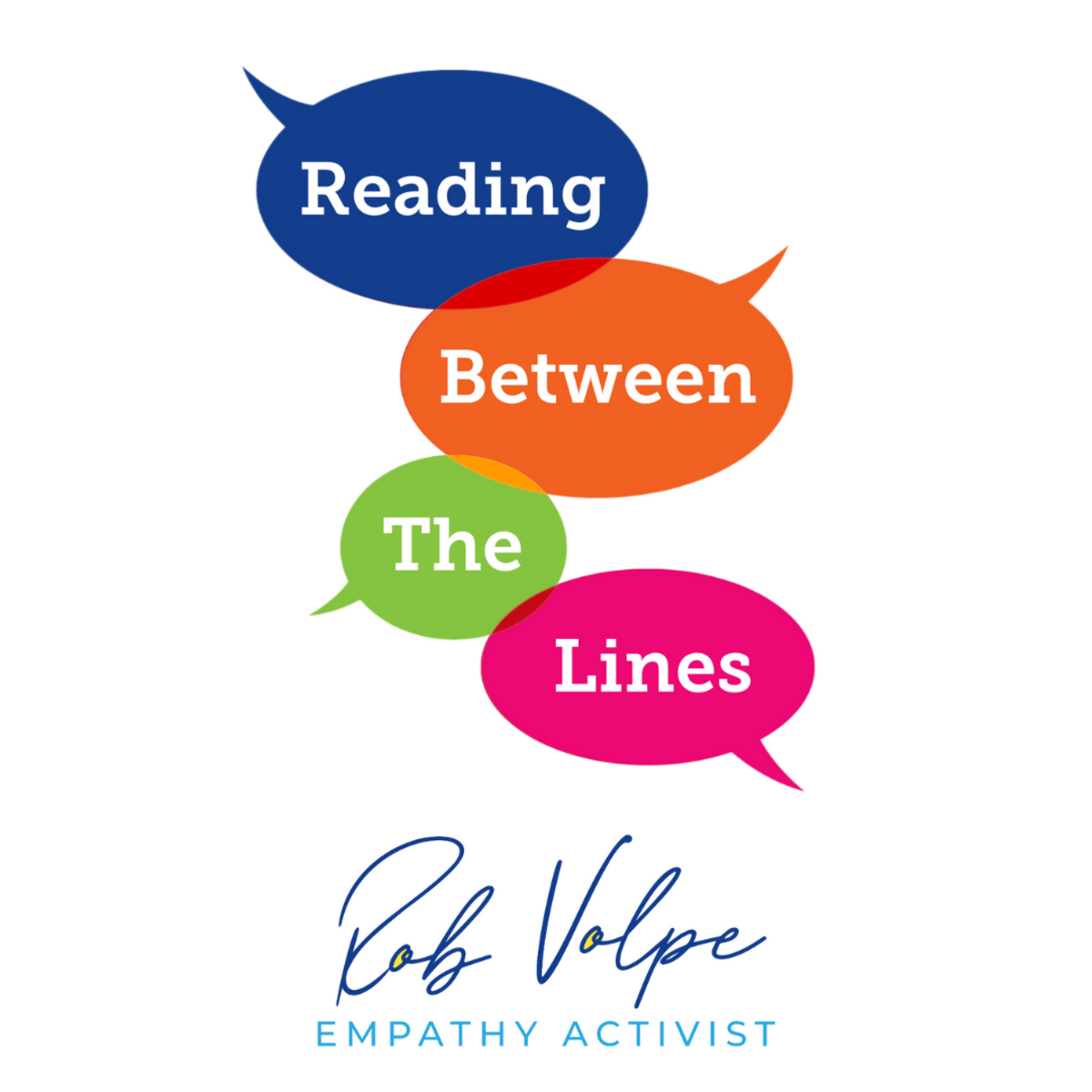
Happy Saturday Friends!
Raise your hand if you’ve gone to the movies to escape. Especially one of those big blockbuster movies. The popcorn movie that transports you to another world, sometimes literally, and you forget about the problems and stress in your daily life. At least for 2 hours.
Something interesting has happened this summer. The popcorn movies that used to galvanize us and give us something to talk about aren’t connecting with us anymore.
Indiana Jones, Mission: Impossible, Pixar’s Elemental and several superhero movies among others underperformed this year.
What has turned heads and gotten people in seats at improbable times of the day is the double feature, zeitgeist phenomenon known as “Barbenheimer.”
Yes, “Barbie” and “Oppenheimer” have broken records, beat expectations and have demonstrated the power to sell-out an IMAX in Los Angeles at 6am. And that was Oppenheimer that did that.
So there I was on a recent Sunday morning. A breakfast of Mr Pibb, popcorn and Milk Duds fueling me through the second half of my own Barbenheimer weekend.
As Oppenheimer ended, I felt like I wanted to cry, similar to how I left Barbie the day before in a joyous state. And as I started to reflect on both movies, I realized what I believe is the reason why these movies are resonating so strongly in 2023.
They both reflect aspects of the existential crises we are facing as a society and as individuals. We see ourselves and our own world in these films.
(MILD SPOILER ALERT BELOW THE PICTURE)

We’ve all found ourselves here a time or ten
Beneath the sets, the costumes, the jokes, the empowerment and the dance moves, Barbie is a movie about who we are and our role in the world. ‘To be or not to be’ from Hamlet. That’s as existential as it gets. And it happens to be one of the big questions we’ve all been dealing with since the pandemic upended life and we suddenly had time to pause and reflect.
Oppenheimer, on the other hand, includes questions about how the development of nuclear weapons gives us the ability to destroy ourselves and the world as we know it. And should we use those weapons? This existential threat is just one of many that we are facing today (in no particular order because depending on who you are, some of these are more of a threat than others)…
1 - nuclear attacks feel more real than they have since the Cold War, particularly related to Russia’s invasion of Ukraine;
2 - climate is changing which is going to affect how we live on this planet, and human activity is a leading cause;
3 - democracy in the United States is at risk of crumbling according to people on both sides of the political spectrum, and if you ask them, they blame each other for causing it while continuing to attack unabated;
4 - AI is suddenly very real and there isn’t a lot of clarity around guardrails being used in development so that it “accidentally” doesn’t terminate us,
5 - oh, and non-human “biologics” were acknowledged in a Congressional hearing by a government whistleblower to have been recovered from a crash site of what is possibly a UFO.
While it’s more of a threat to the individual person, prices remain stubbornly high which is causing people to make choices between saving money and eating.
That’s a lot for people to be processing in the background while they deal with their daily life.
No wonder we continue to feel the stress and snipe at each other. How can we possibly have empathy with other people when our core existence is threatened.
Yet, from what I’ve read and in conversation with psychologists, the way through an existential crisis is to reconnect with those around you (including mental health professionals if needed).
Reconnecting effectively requires empathy on the part of the people connecting. Otherwise the feelings of isolation and loneliness continue. Imagine trying to plug in a plug with no prongs. It’s just going to bang into the outlet and not make the connection. Empathy makes the connection possible.
Once we’ve made that empathetic connection, we feel supported, seen and heard. That stability beneath our feet enables us to process and transform out of our current state and reach into the future.
There’s something to be said about the parallels between the messaging of these two blockbuster movies and the connection we’ve found in the frenzy surrounding them. The excitement of going to the theater with a group of friends, a chance to dress up in a fun sparkly outfit, and the engaging conversations resulting from our own Barbenheimer weekends represent more than a pop culture moment. These movies speak to something deeper that we all can relate to.
Barbenheimer summer has been a chance to come together and be a part of something bigger. And by connecting, we will be able to solve the crises that await us. Together.
Of those 5 existential crises I mentioned, which one takes up more of your mental energy? Reply to this email and please let me know. I’ll share mine in return.
Q&A: Why should I have empathy with the other side when they don’t have empathy with me?
I’ve been getting variations of this question a lot lately. Often the “other side” is referring to politics and that chasm is growing wider and wider.
I’ve heard some people comment that the other side is incapable of having empathy. If empathy is an ability we are all born with, unless the other side is on the anti-social disorder spectrum, they do have the ability to have empathy. I would imagine they have plenty of empathy with people that are in their bubble, just like you have empathy with people that share the same beliefs, values and behaviors as you do.
What they don’t have is empathy with you. And that’s what hurts and leads us to want to withhold empathy for them.
That, however, is not going to help us bridge the divide, find common ground, collaborate, compromise and develop solutions. Empathy is essential to all of those things.
I think about what Michelle Obama has said “when they go low, we go high”. The other side may or may not be going low, but we have the choice to go high. If we truly care to solve the problems facing us, it’s the path that leads us toward the light at the top of the deep hole we find ourselves in. We have to go high.
Recently, David Brooks wrote a great opinion piece in The New York Times asking if we got it wrong in how we judge the other side. Give it a read here and let me know what you think.
Please keep the questions coming!
Rob Spotting Update

Headed to Denver in just a few days for the annual NGLCC Conference!
I’m immensely proud to have a certified minority owned business and the fact that corporate partners are increasingly recognizing the community and actively engaging with us in order to support LGBTQ-inclusive supply-chains is absolutely wonderful.
If you’ll be there next week, let me know! I’d love to say hi!
Free on Tuesday?
While I’m in Denver I’ll also be hanging out at Improper City (3201 Walnut St, Denver, CO 80205) from 5:00-7:00 PM on Tuesday the 15th thanks to the Denver chapter of QRCA. This event is open to the public, so if you or anyone you know would like to spend some time chatting about empathy at a neat place with neat people, come on down and join us.
I won’t have books available for sale at this event, but if you bring your copy of Tell Me More About That I’d be happy to add an IBPA award sticker and a signature for you!
Incongruous?
Within a handful of days I was a guest on The Lazy CEO Podcast and the High Road to Humanity. One conversation was for CEOs and other c-suite leaders while the other speaks to people who want to see a change in how we connect with one another.
Seems disparate and incongruous from the outside but to me, it feels really natural to move from talking about paying attention to the signs the universe is presenting to being a better business leader. The reason is that empathy is at the essential to who we are in our personal and professional lives.
It doesn’t matter if you are in the c-suite or on the factory floor, empathy empowers the skills we use to be successful at being the people we are.
Give these recent podcasts a listen and let me know what you think. (Please also give the podcasts a rating on the platform as it helps them find their audience.)
Reading Between the Lines is a newsletter designed to deliver of-the-moment insights into human behavior and empathy, drawn from the world of marketing research; practical and tactical tips on using the skill of empathy in everyday life; and exclusive updates to keep my community close on a biweekly basis.
I hope you enjoyed this issue. If you know of others that would be interested, I’d appreciate you forwarding this email to them—or inviting them to sign up at the button below. Thank you!

